Millions of people in Cuba remained without power Saturday after a failure of the nation’s electric grid left the island in the dark the previous night.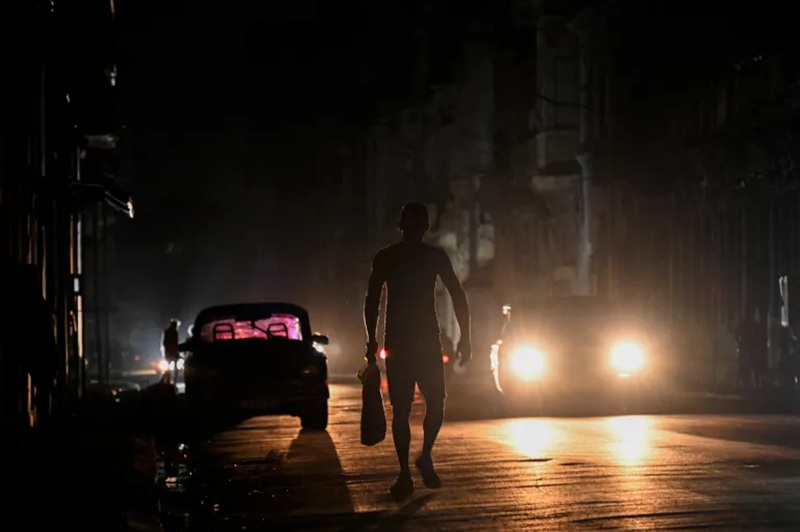
The massive blackout is the fourth in the last six months as a severe economic crisis plagues the Caribbean country. The Ministry of Energy and Mines, in a statement on social media, attributed the latest outage to a failure at a substation in the suburbs of Havana, the capital.
Internet and telephone service were intermittent about 18 hours after power went out around 8 p.m. local time Friday.
Lázaro Guerra, director of electricity at the ministry, said on national television that power was already being generated to support vital services such as hospitals.
A statement from the Cuban Electricity Union released Saturday said the strategy was to create “microsystems” that will connect to each other to gradually restore electricity across the country. Several of these were already operating in the provinces of Guantánamo, Santiago, Las Tunas and Pinar del Río.
In Sancti Spíritus, the provincial energy company reported on its Telegram channel that more than 200,000 customers in that area had electricity thanks to these microsystems.
Many Cuban families use electric equipment to prepare their meals. The outage could cause food to thaw in refrigerators and possibly spoil due to the island’s tropical climate.
“When I was about to start cooking and making some spaghetti, the power went out. “And now what?” Cecilia Duquense, a 79-year-old housewife who lives in the working-class neighborhood of Central Havana, said Saturday.
In Havana, people were shopping for food Saturday. Businesses were open, although some were operating using batteries or small home generators.
Gas stations were also open, but the tunnel that runs under Havana Bay and connects the city to the outskirts was dark.
Cuba suffered similar blackouts in October, November and December. The latest was the first of 2025 but in mid-February authorities suspended classes and work activities for two days due to a shortage of electricity generation that exceeded 50% in the country.
Experts have said the electricity disruptions are a result of fuel shortages at power plants and aging infrastructure. Most plants have been in operation for more than 30 years.
The outages come as Cubans are experiencing a severe economic crisis that analysts have blamed on the effects of the COVID-19 pandemic, a program of domestic measures that triggered inflation and, above all, the tightening of sanctions by the United States.
Source: AP News
The U.S. Secretary of State, Marco Rubio, ordered the withdrawal of U.S. government funds from the independent portal CubaNet, as part of the Trump administration's policy to suspend foreign assistance.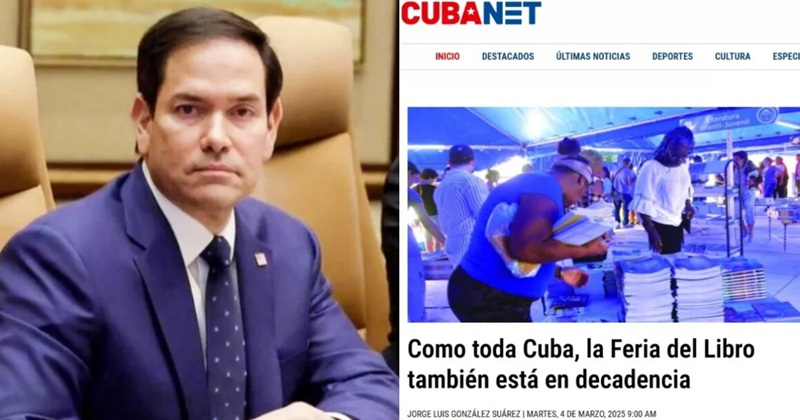
The measure represents a significant blow to the work of independent media operating from exile and giving a voice to journalists within Cuba.
In the opinion of Roberto Hechavarría Pilia, director of the news agency, the decision significantly complicates its continuity.
"It will be extremely complicated to maintain our work as it has been conceived until now," he stated to Diario de Cuba, after being informed of the end of the grant by the United States Agency for International Development (USAID).
CubaNet, founded in 1994, is regarded as the pioneer of independent journalism in Cuba and has served as a platform for journalists on the Island, allowing them to expose the reality censored by the regime.
"Our goal has always been to counteract the propaganda of the Castro regime. Without this funding, the government in Havana will have greater freedom to intensify its propaganda and repression," Hechavarría stated.
The cancellation of funds to CubaNet is not an isolated incident. At the end of January, several independent exile media outlets were notified of the temporary suspension of assistance while the U.S. government reviewed its financing of international programs. However, last week, in the case of CubaNet, the suspension became permanent.
According to the received notification, Secretary of State Marco Rubio and Peter W. Marocco, director of the Office of U.S. Foreign Assistance Resources at the State Department and designated deputy administrator of USAID, determined that the funding program for CubaNet "was not in the national interest." As a result, they decided to terminate and rescind it.
For Hechavarría, the most serious consequence of this decision is that CubaNet will be unable to fulfill its mission with the necessary effectiveness.
"What is happening with independent Cuban journalism, civil society, freedom of expression, and the struggle for democracy in Cuba is a step backwards, just as the Castro regime is at its weakest point," he denounced.
Furthermore, he warned about the geopolitical significance of the measure: "Cuba remains a totalitarian regime just 90 miles from the United States, allied with Russia, China, and Iran. Undoubtedly, for Havana, it is good news that efforts to oversee its actions are being reduced."
Source Cibercuba
Cuba's top tribunal said late on Monday 553 prisoners had been released following a deal brokered by the Vatican that seemed in limbo after Donald Trump reversed a Biden administration pledge to ease sanctions on the country.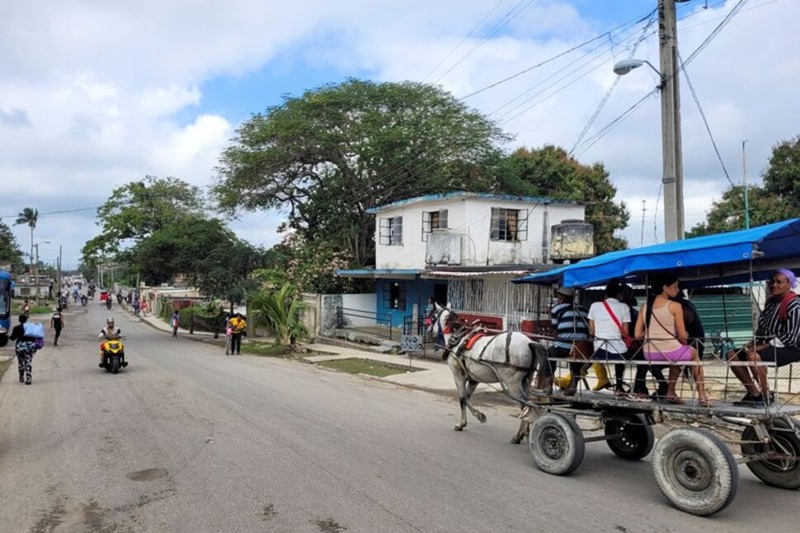
A general view shows a street of La Guinera neighborhood in Havana, Cuba, January 15, 2025.
Former President Joe Biden in January agreed to remove Cuba from a U.S. terrorism blacklist in exchange for the prisoner release in negotiations with the Catholic Church.
Trump rescinded the Biden deal upon taking office, putting Cuba back on the list, slapping the island with fresh sanctions and prompting its communist-run government to temporarily pause the prisoner release.
But Cuba's state-run media said on the evening TV newscast Monday that judicial officials had confirmed the "early release" of 553 prisoners.
"Authorities of the Supreme People's Court of Cuba affirm that these 553 people are already free and that the process has concluded," the report said.
Rights groups began reporting a fresh trickle of prisoners released from the island's jails last week despite Trump's decision to back out of the Biden deal. The groups, however, said some of those liberated appeared to be common criminals.
The Biden administration had initially said Cuba would release "political prisoners" as part of the broader deal.
But Cuba did not specify, saying it would gradually release "553 people sanctioned for diverse crimes."
The United States, the European Union, the Catholic Church and watchdog groups have long pushed Cuba to release hundreds of protesters jailed following anti-government protests on July 11, 2021, the largest since Fidel Castro's 1959 revolution.
Cuban authorities maintain those it jailed committed crimes ranging from arson to vandalism and sedition.
Watchdog groups said around 200 prisoners tied with protests had been released as of late last week, though they said scarce information made it difficult to be sure.
The Cuban state-run media report on Monday did not specify how many of the 553 prisoners released under the Vatican-brokered deal had been detained in relation to the 2021 protests.
Source USNEWS/Reuters
The U.S. Department of Homeland Security announced Wednesday that a group of federal agents had arrested a man in Broward County who was accused of formerly spying for Cuba.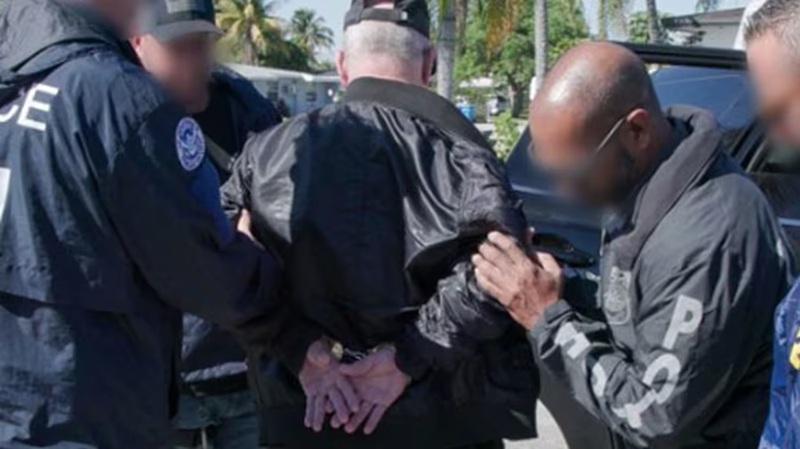
HSI did not identify the gray-haired man by name. The announcement on X described him as “a former member of Cuban intelligence” who had “fraudulently” obtained his lawful permanent resident status and posed a “threat to national security.”
According to Nestor Yglesias, a Miami-based spokesman for HSI, the arrest was in West Park. Aside from HSI, it also involved agents with the FBI and ICE.
It’s unclear if the man was related in any way to the case of Manuel Rocha, a Colombian-American former U.S. diplomat who was sentenced to 15 years in prison last year for spying for Cuba for decades before an undercover FBI agent caught him in Miami.
In a recorded meeting, Rocha, 73, a former U.S. ambassador to Bolivia also known as Victor Manuel Rocha, referred to the U.S. as the “enemy” and boasted about how he pretended to be a hard-nosed conservative while secretly operating as an ideological spy who admired Fidel Castro.
Source: WPLG Channel 10
The U.S. State Department under Secretary Marco Rubio abruptly canceled
foreign aid programs supporting opposition activists, political
prisoners and religious groups in Cuba, Nicaragua, and Venezuela, after concluding that they were not “in the national interest.” raising concerns about a shift in U.S. foreign policy.
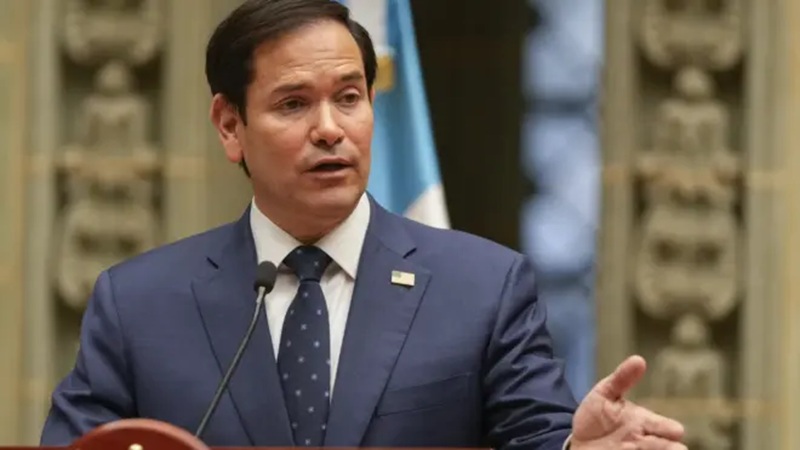
The canceled programs were managed by the International Republican Institute (IRI), a nonprofit organization linked to the ruling party, and were focused on promoting democracy in authoritarian countries, according to a publication from El Nuevo Herald.
The publication states that “all but three of the 95 programs” that the Institute had in these countries were abruptly canceled. The remaining three programs, related to groups in Venezuela, are on hold, following President Donald Trump’s executive order to freeze all foreign aid funds for 90 days.
“The rest of the 175 programs of the Institute worldwide are also in limbo because they rely on funds directly allocated by Congress to the National Endowment for Democracy (NED). The NED has said it has been unable to access the money,” the article reads.
In the cancellation notices sent by the State Department and the US Agency for International Development (USAID), it was stated that the contracts “were not aligned” with the agencies’ priorities and were not “in the national interest.”
“The IRI’s Democratic counterpart, the National Democratic Institute (NDI), is facing a similar challenge. Sources said that about a hundred programs were terminated, and only one program remained in the region, focused on Venezuela,” says the publication.
Most employees of both institutes, the National Endowment for Democracy, and other organizations working with foreign aid programs have been given administrative leave.
A Supreme Court ruling ordered the US government to release part of the funds owed for the work already carried out by some of these organizations and contractors managing foreign aid programs. However, with so many contracts already canceled and staff on leave or dismissed, it is unclear how the government will proceed.
In a Senate hearing on Wednesday, February 26, 2024, regarding the progress of US interests in the Western Hemisphere, Florida Senator Rick Scott echoed current opinions on foreign aid among Trump administration officials in an exchange about how to justify the money spent to taxpayers.
“My problem is that I can’t go to Florida and say, ‘Boy, I’m excited about how much money we spent on foreign aid because something might happen. Let’s see: the Castro regime still controls Cuba, Venezuela just stole another election, Ortega is strengthening himself in Nicaragua,'” said the senator.
The suspension of foreign aid programs for the promotion of democracy in authoritarian countries, a bipartisan US policy maintained for decades, has left many wondering if the Trump Administration has abandoned that objective.
El Nuevo Herald also indicates that the issue was addressed in a call with IRI leaders to warn staff working for the Florida Congressional delegation, home to the largest Cuban, Nicaraguan, and Venezuelan communities in the US, “that the organization would not survive much longer without funding, probably only a few weeks.”
They add that in the call, the president of the International Republican Institute, Daniel Twining, reportedly said that “cuts to democracy promotion would only benefit dictators in places like Cuba, Venezuela, and Nicaragua.”
Source: The Miami Herald